Thank you to educational consultant and high school English teacher Jacqueline Stallworth for sharing her thoughts on how the books we choose to teach (or not teach) can profoundly impact today’s learners.
Recently, I was cycling with a man who graduated from high school in 1976, and he fondly told me about his high school English teacher who allowed him and his classmates to read any books they chose. He vividly remembered that he loved to read science-fiction novels. Because his teacher knew him well, he would find the hardest, science-fiction books for him to read and this did wonders for his self esteem. Our ride ended, but my thoughts about that poignant conversation did not.
Here are two of my takeaways.
- The teacher knew the students and made suggestions based on their interest.
- The teacher gave the students choice.
Getting to Know Our Students:
I have spoken with many teachers who only expose their high school students to novels from the literary canon. Books such as To Kill A Mockingbird by Harper Lee, Catcher in the Rye by J.D. Salinger, Lord of the Flies by William Golding, The Scarlet Letter by Nathaniel Hawthorne, and Heart of Darkness by Joseph Conrad. However, it seems that these books are not creating life-long readers and thinkers, but instead, it seems that the teaching of these books is creating students who rely heavily on google, sparknotes, and the teacher. I remember having a conversation with a group of high school students, and they reluctantly told me that when they are assigned those traditional classic novels, they don’t read them.
Novels that are in the traditional “literary canon” are novels that may have been eye-opening at the time that they were written, but may no longer interest students. We can find more relevant books that can help us to achieve the same goals as those “traditional classic novels.”
For instance, Catcher in the Rye by J.D. Salinger, was revolutionary at the time that it was written in the 50s; however, there are probably few students who are shocked by a teenager dropping out of school, cursing, and roaming the streets. However, students today may be more able relate to Trevor in Born a Crime by Trevor Noah. In the novel, Noah discusses ideas that are relevant today such as the power of language, the need to fit in, class, religion etc.
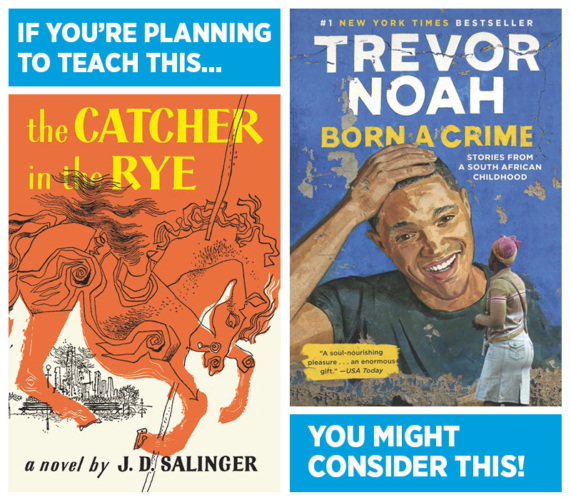
Also, To Kill a Mockingbird probably changed a lot of people’s thoughts when it first came out; however, there are other books that are current and relevant and address questions that are on our countries’ consciousness right now. For instance, in The Sun Does Shine, Anthony Ray Hinton is a modern day Mockingbird, a man who was wrongfully convicted of a crime that he did not commit. Anthony Ray Hinton story is on the pulse of ‘right know’ bringing up issues such as prison reform and the death penalty. Students can think and write about questions such as “Is The Justice System Fair?” and they could research cases and come to some conclusions and began the life-long work of being critical thinkers and have the choice of engaging in national conversations and actions on these topics.
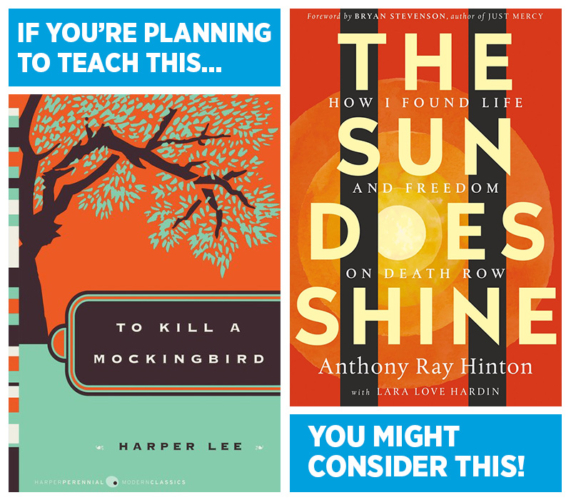
Why Do Students Stop Reading?
I have talked to many parents who stated that once their children started middle and/or high school, they stopped reading. I recently talked to a student who was a graduating senior, and he told me that he did not read one book during his entire time in high school. I was thinking, you didn’t read Catcher in the Rye that your teacher insisted that the entire class read, or not one of those Shakespeare plays that you were taught every, single year that you were in high school?
I think about how much I love books, and I did not fall in love with reading by reading books that I hated; most folks fall in love with reading by reading books that speak to their hearts. If we only assign books to students that they will not read, then how will we get to those skills that are crucial such as critical thinking? How can we have some type of insurance that they just might turn into life-long, curious learners if they find ways to pass our classes without reading?
Student Choice!
What if teachers got beyond their own biases and taught thematically, asking overarching questions, allowing students some freedom in what they decide to read?
What if a teacher did a unit on Conformity and Rebellion and asked a question such as “When is it ok to conform and/or rebel?” In this unit, they could read books like Born a Crime by Trevor Noah, When They Call You a Terrorist by Patrisse Khan-Cullors, White Fragility by Robin DiAngelo, The Short and Tragic Life of Robert Peace by Jeff Hobbs, and A Long Way Gone by Ishmael Beah. The number of short stories and poems on this topic are endless, and many of those short stories and poems are even in textbooks, which are, by the way, trying their best to have diverse voices. Then, the students can critically think about these texts and actually come up with some ideas of their own and support their ideas with the text: critical thinking.
The times that we are living in are scary and yet exciting, and the literary world is boldly rising up to the challenges that we are facing. Teachers, we can help our students to make sense of the world that we live in and their place in this world through “good literature.” And, by good literature I mean books that “Disrupt” their thinking as stated by Kylene Beers and Robert E. Probst in their book Disrupting Thinking. Books like Little and Lion by Brandy Colbert that made me think about my students who may be dealing with mental illness or those questioning their identity, or All the Stars Denied by Guadalupe Garcia McCall which helped me to see that the immigration concerns that we are facing today are not new, or Boots on the Ground by Elizabeth Partridge which humanized the public and private citizens of the Vietnam War, or books like Milk and Honey by Rupi Kaur which raised my level of empathy for girls who are suffering and who may be in my classroom.
Change Begins with Adults
Schools can be relevant and rigorous at the same time, but we must be willing to rethink and reimagine the literary canon. We must expose our students to all types of stories and give them permission to select books that they know should be in “their” literary canon. If we continue to mainly focus on books from the traditional “literary canon,” books that are mostly written by dead white men, I know that we will continue to leave out many voices and perspectives and leave many children behind. Change is not easy, and it requires us to think outside of the way that we were taught, but I believe with my whole heart that we can foster a love for reading and critical thinking if we, as educators, are willing to CHANGE.
About the Author:
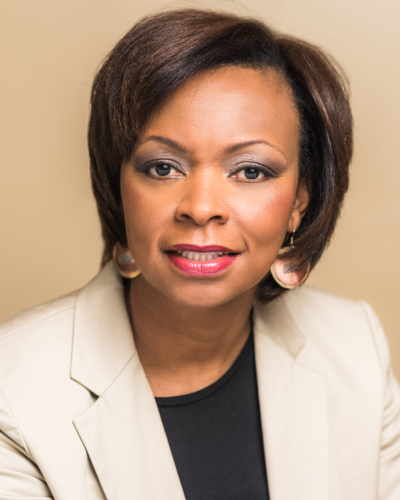 Jacqueline Stallworth is the founder of Stallworth Educational Consulting Team, a company that is doing the work to ensure that schools’ curriculum reflect our diverse world. She’s also an Advanced Placement literature consultant for College Board, and a high school English teacher in Northern Virginia. She writes about her love for books and life on her blog The Big Sea. You can also find her on twitter (@thebigseablog) and Instagram (the_big_sea_blog).
Jacqueline Stallworth is the founder of Stallworth Educational Consulting Team, a company that is doing the work to ensure that schools’ curriculum reflect our diverse world. She’s also an Advanced Placement literature consultant for College Board, and a high school English teacher in Northern Virginia. She writes about her love for books and life on her blog The Big Sea. You can also find her on twitter (@thebigseablog) and Instagram (the_big_sea_blog).


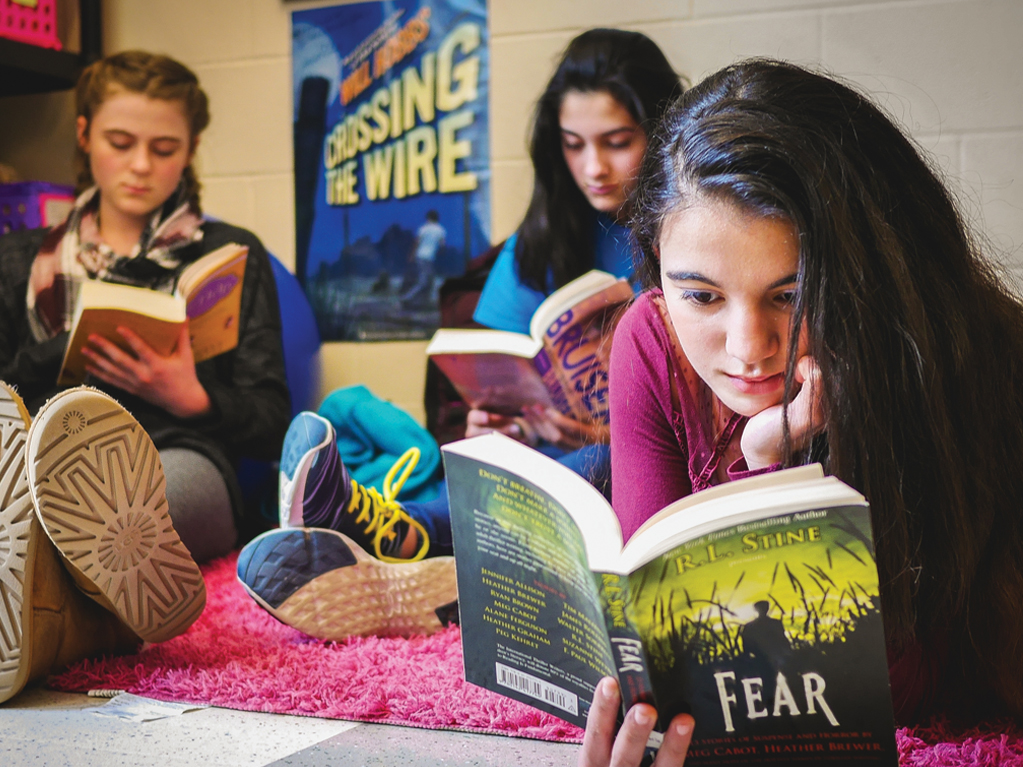
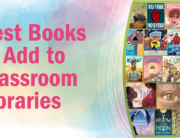
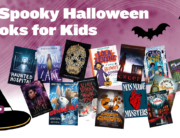
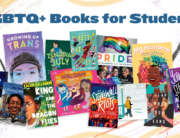
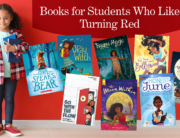
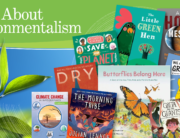
Choice is an excellent idea in theory. In order to make that work, there needs to be education reform that includes no more standardized tests. In a classroom of students who are reading a variety of different texts, how would you assess them in a meaningful way? A way in which they cannot cheat, or google? Lack of interest or relevance of the books is not the only reason kids have lost interest in reading. Let’s take a look at what has happened with technology and the amount of screen time kids have, video games, streaming shows from anywhere, etc. certain classics are read because unfortunately the themes are timeless. Some things haven’t changed in history.
Although I am not a n English not Literature teacher, I am lover of books and try to instill a love of reading with my students. So, your analysis of high school students and their reading or non-reading habits are very true and relatable. I will share your recommendations with my colleagues
A fantastic read & an eye opener. I have a question, how much the Lexile level of reading should be reenforced on students. Does that help to reading habits.?
I have to say that I’d keep To Kill a Mockingbird in the curriculum because it is still relevant today. Is the justice system fair? No. I’d pair it with your pick to talk about current issues and the fact that the African American population is still fighting the same fight from TKaM. It might shine some light on those who don’t necessarily believe strongly in the BLM movement. Then you can throw in A Time to Kill and talk about Charlottesville. You can even bring in Colin Kapernick….